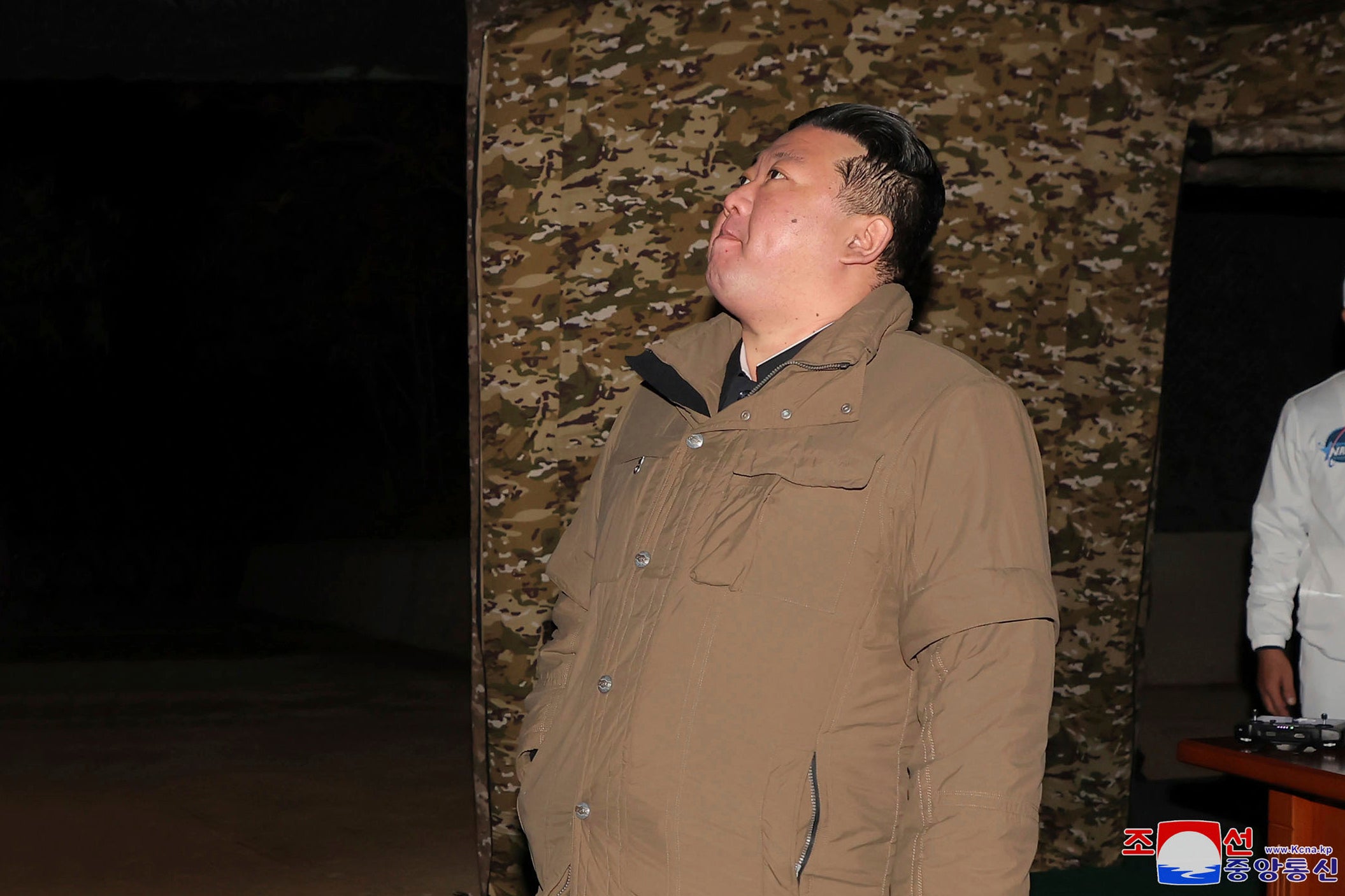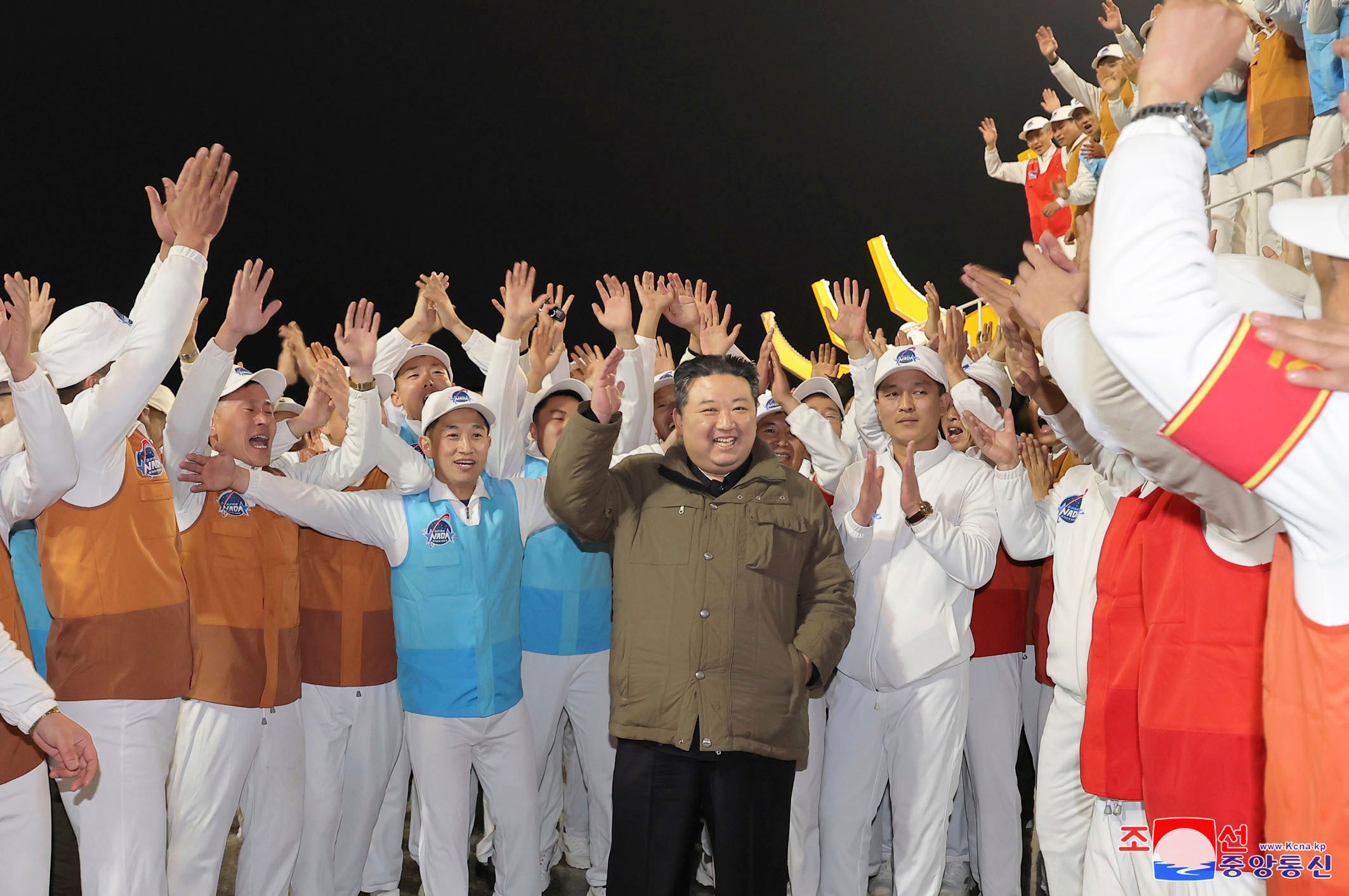North Korea says it has succeeded in controversial military spy satellite launch
Launch sharply criticised by US and UN as neighbour South Korea moves to suspend parts of military agreement aimed at de-escalating tensions
North Korea claimed to have successfully put its first military spy satellite into orbit in a launch the US has sharply criticised as a “brazen violation of multiple UN Security Council resolutions”.
South Korea and Japan confirmed Tuesday’s launch, but were not able to immediately verify if it was a success.
Experts have also questioned whether the launch, which comes after two previous failed attempts, will achieve North Korean leader Kim Jong-un’s objectives of enhancing his nuclear-armed country’s ability to conduct pre-emptive strikes and monitor the US, South Korean and Japanese troops.
The launch also comes just months after Russian president Vladimir Putin had pledged to help Pyongyang in its space programme during his meeting with Mr Kim in a rare September summit.
The Malligyong-1 reconnaissance satellite was sent into orbit on a Chollima-1 rocket at 10.42pm local time on Tuesday, according to North Korea’s state media KCNA.
The launch from the Sohae satellite launch facility “accurately put the reconnaissance satellite” into orbit at 10.54pm, it said, citing North Korea’s National Aerospace Technology Administration.

Mr Kim oversaw the launch, which was carried out earlier than the nine-day warning window Pyongyang notified Japan about.
The launch was condemned by the UN which has prohibited North Korea from such launches due to its nuclear missile development.
UN chief Antonio Guterres strongly denounced the launch and called on North Korea to return to the path of denuclearisation.
“Any launch by [North Korea] using ballistic missile technology is contrary to the relevant Security Council resolutions,” he said.
The White House said the launch is a “brazen violation of multiple UN Security Council resolutions, raises tensions, and risks destabilising the security situation in the region and beyond”.
Japan has criticised North Korea for the launch and prime minister Fumio Kishida said it was a violation of UN Security Council resolutions.
“We have lodged a stern protest and condemned North Korea in the strongest terms,” Mr Kishida said.

Japan said North Korea’s frequent missile launches are a threat to regional peace and safety.
During the launch of the satellite, Japan resorted to its emergency broadcasting system to warn residents in nearby Okinawa prefecture to take cover inside buildings or underground.
South Korea’s president, who is currently on a visit to the UK, moved to suspend a part of a military agreement it signed with Pyongyang in 2018 aimed at de-escalating tensions in the Korean peninsula.
The South Korean defence ministry said it would resume aerial surveillance activities near its border with the North.
The country’s officials also noted that the latest launch attempt likely incorporated technical assistance from Russia as part of a growing partnership in exchange for military equipment, a claim denied by both North Korea and Russia.
North Korea defended its launch, calling it a “legitimate right” for strengthening its self-defensive capabilities and war preparedness.
It pledged to launch “several reconnaissance satellites in a short span of time” to “secure the capability to reconnoitre the south Korean region”.
Leif-Eric Easley, a professor at Ewha University in Seoul, said questions remain over the efficacy of the satellite.
“State-controlled media claims of a successful launch do not mean the satellite will actually perform meaningful reconnaissance functions,” Mr Easley said, while pointing out that North Korea had declared it would attempt a third launch anyway.
“Moreover, public denials from Pyongyang and Moscow about sanctions-evading military cooperation do not mean that Russia isn’t providing assistance for North Korea’s spy satellite programme.”
Marco Langbroek, a satellite expert at Delft University of Technology in the Netherlands, told Reuters while “observational” satellites launched by the North did achieve orbit in 2012 and 2016, it is not known whether they were ever truly functional. Both had burned up in the atmosphere this year.
The country’s two earlier attempts this year resulted in embarrassing and costly failures, with the satellites breaking up during early stages of the launch.
South Korea salvaged debris from the failed first launch in May and said the satellite had “no military utility”.
Join our commenting forum
Join thought-provoking conversations, follow other Independent readers and see their replies
Comments
Bookmark popover
Removed from bookmarks